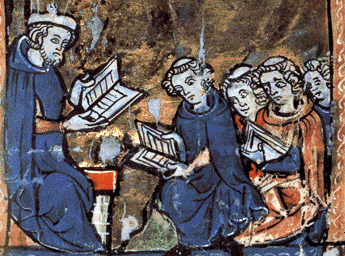The Seafarer §1-12a
Edited by Tarrin Wills
siþas ‘journeys’
acc. pl.
sið (noun m.; masc noun): journey, expedition; fate, destiny; custom, habit; time, occasion
Closeearfoðhwile ‘times of hardship’
dat. pl.
earfoðhwil (noun f.; fem noun): time of trouble or hardship
Closegebiden ‘endured’
pers. pret. participle;
gebidan (verb; Class 1 str verb): experience, live to enjoy
Closegecunnad ‘experienced’
pers. pret. participle;
cunnian (verb; wk verb w. acc or gen): explore, try out, find out
Closecearselda ‘anxious lodgings’
gen. pl.
cearseld (noun n.; neut noun): miserable residence, house of care
Closebigeat ‘has found’
3rd pers. pret. sg.
begietan (verb; Class 5 str verb): get, acquire, take; overcome, befall
Closebe ‘along’
be (prep.; prep): by, with, by means of; near by, beside; because of; about, regarding
CloseTeaching text: text section
Here you can see a piece of text. Clicking on words in the text will show you the dictionary headword, grammatical information and notes on how the word is used.
You should pay careful attention to the explanation of each word. You can test your knowledge using the translation and other exercises.
In some cases there may be audio of a modern Icelandic rendition of the text on this page.
